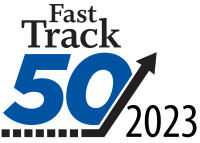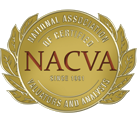401(k) Benefit Plan Audits
Good benefits can help to attract and retain top talent. When medium- and large-sized businesses offer employees a 401(k) plan, they’re helping their workforce to build financial security in retirement. However, aside from the many obvious benefits, there are also risks that your business may face if a retirement savings plan is not set up or managed correctly. This is where the Department of Labor’s (DOL) Employee Retirement Income Security Act (ERISA) comes into play, providing guidance and requirements so that companies and employees alike can benefit.
Many companies across Ohio offer a retirement plan to their employees, and depending on size, they likely need to comply with the DOL’s annual auditing schedule. But this doesn’t need to be cause for stress–working with an experienced Ohio CPA ensures that your company stays compliant and also frees you up to keep getting business done.
What Is a 401(k) Audit?
A 401(k) audit is a routine part of sponsoring a qualified retirement savings plan. The audit is handled via a third-party administrator (TPA) and must comply with criteria as outlined in ERISA. The reasoning behind the audit is to discover whether the plan is being administered correctly and to ensure that it is financially sound. A certified public accountant is best equipped to conduct the audit, given their deep knowledge of both financial and tax-related matters. Besides the audit itself, an accompanying 5500 form (Annual Return/Report of Employee Benefit Plan) will also need to be submitted.
As part of the audit, your local accountant will be in the position to uncover any inconsistencies or errors in the plan, giving you an opportunity to correct these prior to submission. The yearly audit must be completed within seven months of the plan year’s end, with an extension available in certain situations.
At NMS Certified Public Accountants our 401(k) auditing services are applicable for a variety of retirement savings plans, including:
- Defined Contribution/Benefit Plans (401(k), SEC Form 11-K, 403(b), Profit Sharing)
- Health and Welfare Plans
- Cash balance pension plans
- Employee Stock Ownership Plans (ESOP)
- MEPs (Multiple employer plans)
We can also assist with related needs, including:
- Form 5500 preparation
- Plan mergers, acquisitions, and spin-offs
- Full or partial plan terminations
- DOL and IRS investigation
- ERISA compliance
- Form 5500 and Form 990 or 990 T filings
Who Needs a 401(k) Plan Audit?
The standard rule states that any company offering a 401(k), 403(b) or similar retirement plan with at least 100 eligible, enrolled employees must submit a yearly audit to the IRS. Eligible employees generally will not include those working part-time as well as independent contractors and others who are not full-time W2 employees. Most large and mid-sized businesses are required to conduct this annual audit, however there are two situations that will garner exceptions: 1) a partial year plan of seven months or less; and 2) the 80-120 rule, which maintains an audit-free status from one year to the next when your plan begins with 80+ participants but never climbs above 120. Your trusted Ohio CPA will be sure to explain all the details, including whether a limited-scope or full-scope audit is best for your specific situation.
How To Prepare for a 401(k) Audit
At NMS Certified Public Accountants, our skilled team can handle most of the legwork for you when it comes to annual audits. However you will need to secure and provide certain information to streamline and expedite the process, including:
- Retirement savings plan documents, summary, and amendments
- Certification letter
- IRS determination or opinion letter
- Payroll data and employees’ personal data points
- Time-stamped communications/meeting minutes
- Trust statements and reconciliations
- Summary of year’s activity
- Investments, contributions, rollovers, loans, hardship withdrawals, and distributions schedules
Keeping track of plan-related documents across the year will go far to reduce the time and effort needed to supply your auditor with the needed information when it comes time to conduct the audit. In general, a timeline of 4-6 weeks is a realistic estimate for the completion of a smooth, complication-free audit. However, if documentation is not provided on time, or issues are noted while conducting the audit, the process will naturally be slowed. We recommend that businesses subject to this annual audit plan ahead and take steps to get the process started sooner rather than later, since incomplete, inadequate, or untimely reporting could put companies at risk of receiving fines imposed by both the IRS and the Department of Labor.
Rely on Our Experienced Ohio CPAs
If your business is subject to a yearly audit of your retirement savings plan, you want to be sure that the auditor you choose to work with has what it takes to make the process as smooth and as painless as possible. At NMS CPA, our certified public accountants have the training necessary to effectively and efficiently carry out your audit, with experience to spare. We are members of the American Institute of Certified Public Accountants (AICPA) and the Employee Benefit Plan Audit Quality Center (EBPAQC), which means that we meet rigorous industry standards and receive regular internal and external reviews. Our professional auditors remain up-to-date on the latest technical and financial requirements, and are ready to employ their skills on your behalf!
Get in touch with us today to learn more about retirement benefit plan audits and our full suite of business and individual services.






